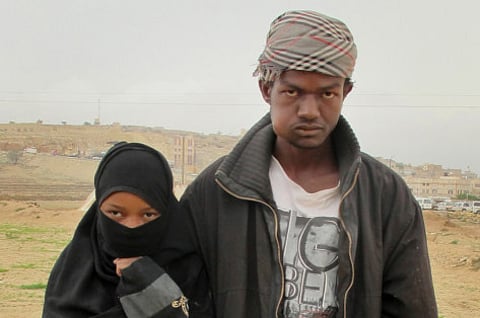Campaign to stop child marriages in Yemen disrupted by war
My heart is bleeding inside, but I was forced to do this. I can’t afford to feed my children: Yemeni father

Yemen: Child marriages have long been woven into Yemen’s social fabric, driven largely by poverty, as in many parts of the world. But before the civil war began last year, international and local activists had made progress towards ending the practice. They were campaigning for a law setting 18 as the minimum age for marriage and for girls to remain in school.
Now, those efforts have stalled. As the war grinds on, community leaders and aid workers are noticing that more and more girls, some as young as eight, are being married off to help their desperate families. Tens of thousands of families have been displaced, losing their homes and possessions.
“Fathers are thinking, ‘If I have a daughter at or near puberty, I should try to get her married as fast as possible to lessen expenses,’” said Ahmad Al Qurashi, the director of SEYAJ, a well-known Yemeni nonprofit organisation working to protect children.
Fayrouz’s mother needed a blood transfusion. The family sold their belongings after the war intensified last year. But the money raised was not enough to pay their debts to the hospital and relatives.
Their shy daughter, a shade under four feet tall, became their only source of income.
“We needed the money from the dowry,” said her father, Ahmad Haider Sayed. “Or else, I would never have married her off.”
The rise in child unions is the latest, and among the least visible, indicator of the war’s disproportionate impact on children. Across this nation, the Middle East’s poorest, more than 1,000 children have been killed — nearly one-third of all civilian deaths — since the conflict began in March 2015, the United Nations Children’s Fund says. About 1,500 children have lost limbs or have been otherwise maimed.
Less than two years ago, Fayrouz’s future looked more promising. She was getting an education. Her father was working. Yemen was in a humanitarian crisis long before the war began, and aid agencies were providing food, medicine and other assistance for their community.
In January 2015, after pressure from activists, Yemen set a minimum age of 18 for marriage in a new constitution. But then the war began and Iran-backed Al Houthis, who took over the government by force, did not ratify the document. Today, Yemen still doesn’t have a legal minimum age for marriage.
One charity, the Danish Refugee Council, recruited community leaders to raise awareness about the dangers girls face when they marry young and become mothers. Yemen has one of the highest rates of maternal mortality in the world, with girls as young as 12 dying at childbirth, aid workers informed the residents.
“We tried to prevent child marriages, and there was some impact,” said Abdo Ali Salim, an elder who worked with the charity. “The community knew all the bad effects.”
But the conflict has forced most international aid agencies to curtail their operations. Funding for local groups assisting children, including SEYAJ, has shrunk dramatically. Even the United Nations is struggling to obtain funds as more publicised conflicts in Syria, Iraq and elsewhere compete for donor money.
The efforts of courts, police and social service organisations to protect women and children have also been disrupted by the war.
In the absence of the rule of law, assaults, rape and other forms of harm to females have also risen. “Gender-based violence including child marriage has noticeably increased in Yemen due to the conflict, although the situation before was already of concern,” said Fahmia Al Fotih, an analyst with the United Nations Population Fund.
Mohammad Ali Al Ansi married off his two girls, aged 13 and 14, in April.
“My heart is bleeding inside, but I was forced to do this,” he said. “I have no job. It’s difficult for me to feed my 10 children.”
He received $1,600 in dowry for each of his girls, he said.
But after paying for their weddings and meeting other debts, the money has nearly run out.
“If things get worse, there’s no doubt I’ll marry off my 12-year-old daughter,” Al Ansi said.
Dressed in a traditional black head-to-toe abaya, Fatima waited for her 21-year-old husband, Zaid, to return home. She is Al Ansi’s 14-year-old daughter.
Outside their tent, boys kicked a ragged ball and girls skipped rope. But Fatima spent her day cooking and washing clothes for her in-laws.
When asked the name of her husband’s family, Fatima didn’t know it.
She remembers her father telling her and her sister, Amal, that the family needed money. She remembers that Amal was in tears because her new husband was taking her to another region. The two sisters have not seen each other since their weddings.
“I am too young to be married,” Fatima said. “I want to study. I want to learn how to write.”
“I have sacrificed for my family,” she continued, her voice dropping to a whisper.
Sign up for the Daily Briefing
Get the latest news and updates straight to your inbox



